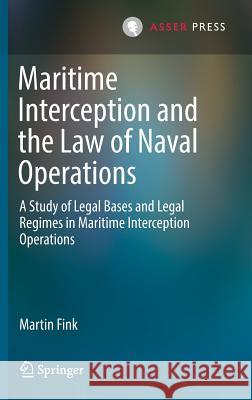Maritime Interception and the Law of Naval Operations: A Study of Legal Bases and Legal Regimes in Maritime Interception Operations » książka
topmenu
Maritime Interception and the Law of Naval Operations: A Study of Legal Bases and Legal Regimes in Maritime Interception Operations
ISBN-13: 9789462652484 / Angielski / Twarda / 2018 / 317 str.
Maritime Interception and the Law of Naval Operations: A Study of Legal Bases and Legal Regimes in Maritime Interception Operations
ISBN-13: 9789462652484 / Angielski / Twarda / 2018 / 317 str.
cena 524,53
(netto: 499,55 VAT: 5%)
Najniższa cena z 30 dni: 501,19
(netto: 499,55 VAT: 5%)
Najniższa cena z 30 dni: 501,19
Termin realizacji zamówienia:
ok. 22 dni roboczych
Bez gwarancji dostawy przed świętami
ok. 22 dni roboczych
Bez gwarancji dostawy przed świętami
Darmowa dostawa!
Kategorie:
Kategorie BISAC:
Wydawca:
T.M.C. Asser Press
Język:
Angielski
ISBN-13:
9789462652484
Rok wydania:
2018
Wydanie:
2018
Ilość stron:
317
Waga:
0.64 kg
Wymiary:
23.39 x 15.6 x 1.91
Oprawa:
Twarda
Wolumenów:
01
Dodatkowe informacje:
Wydanie ilustrowane











